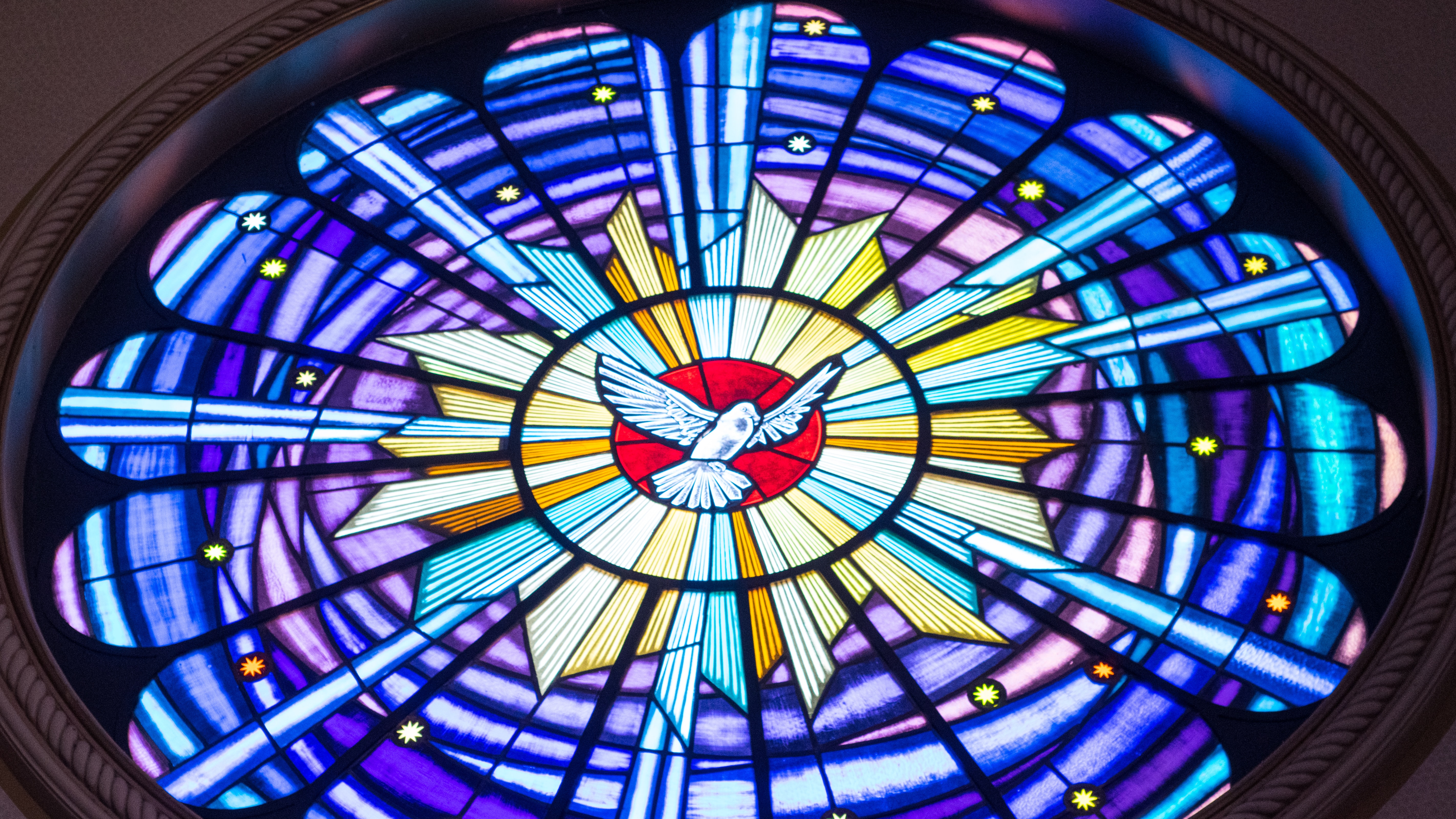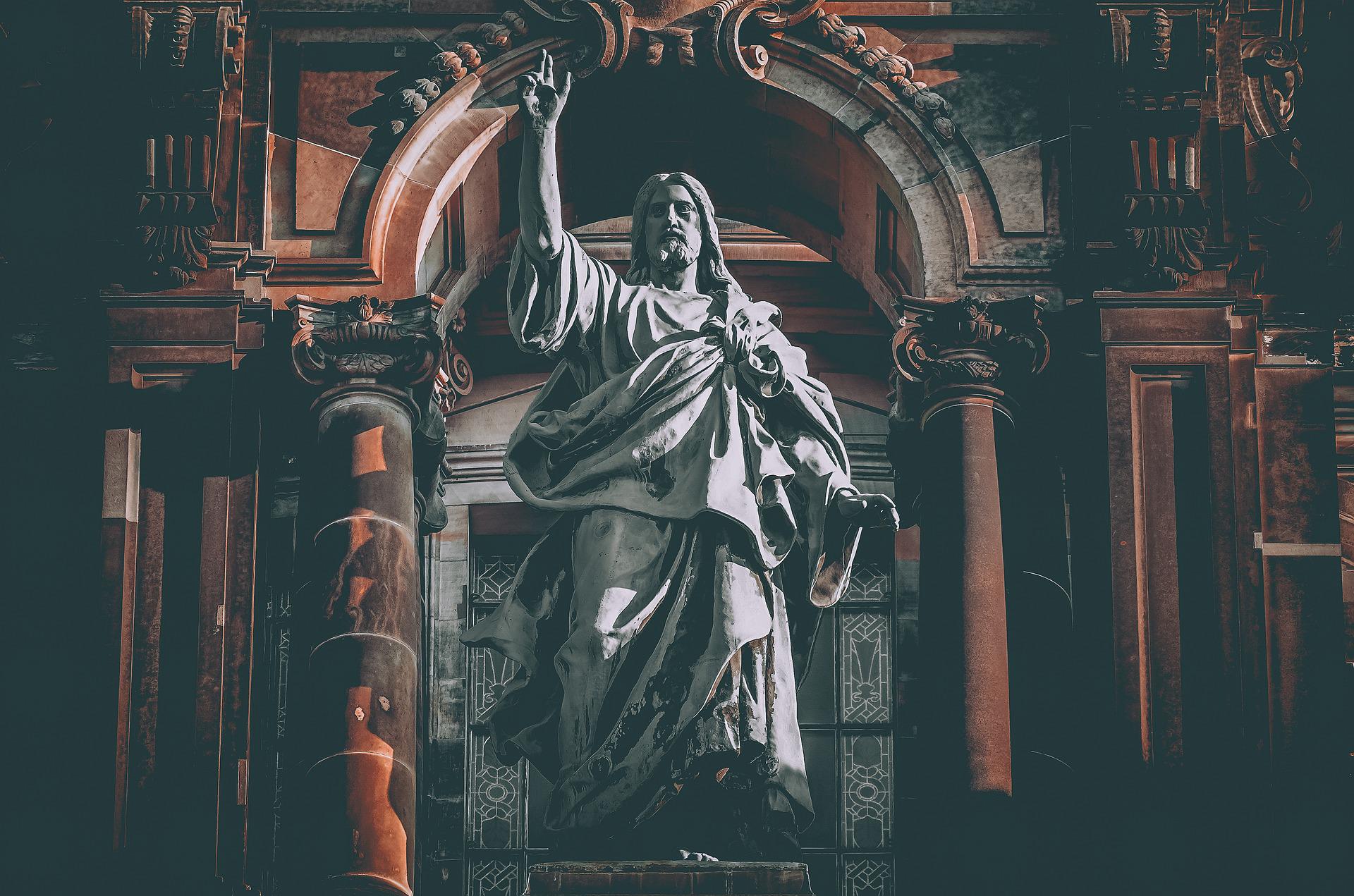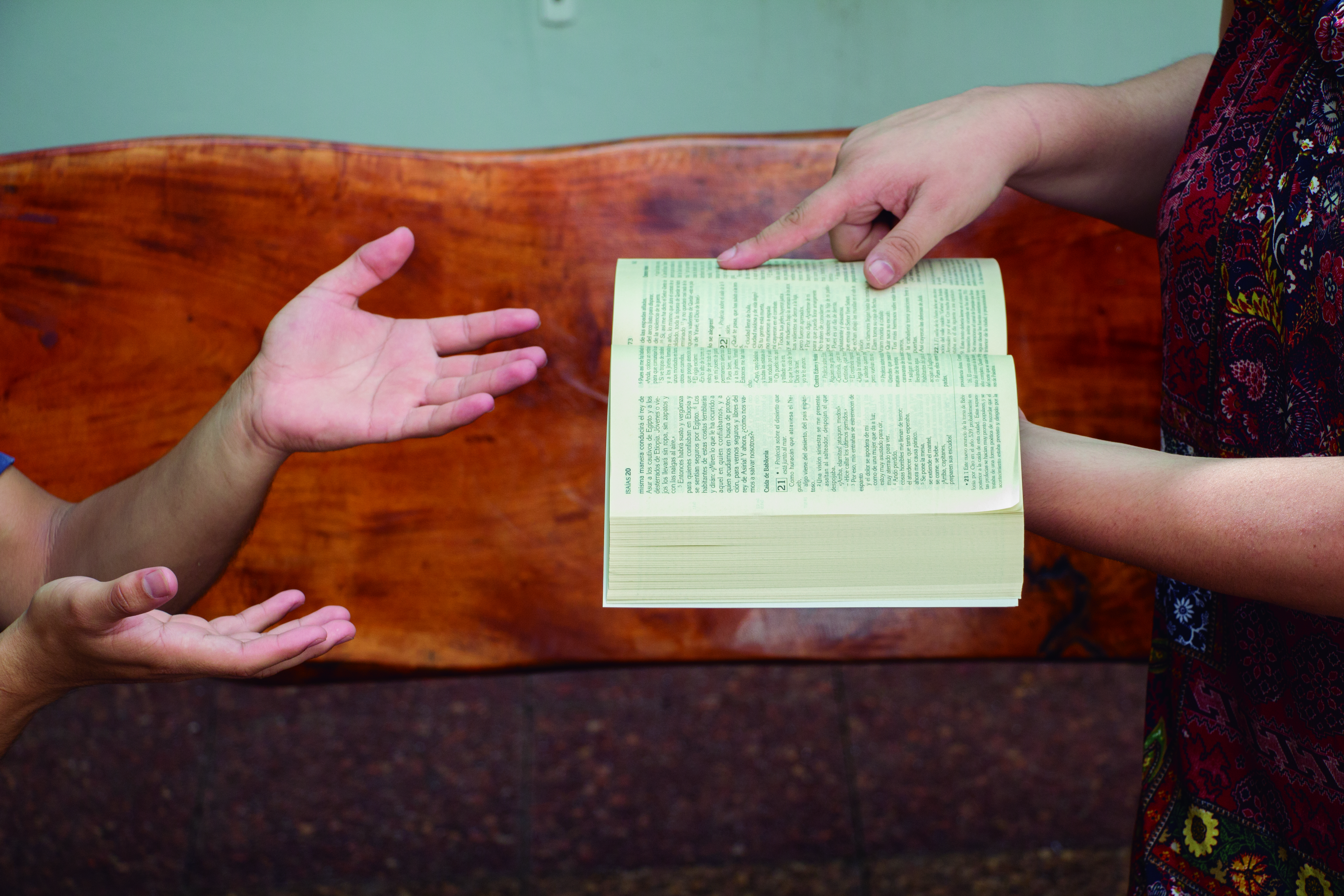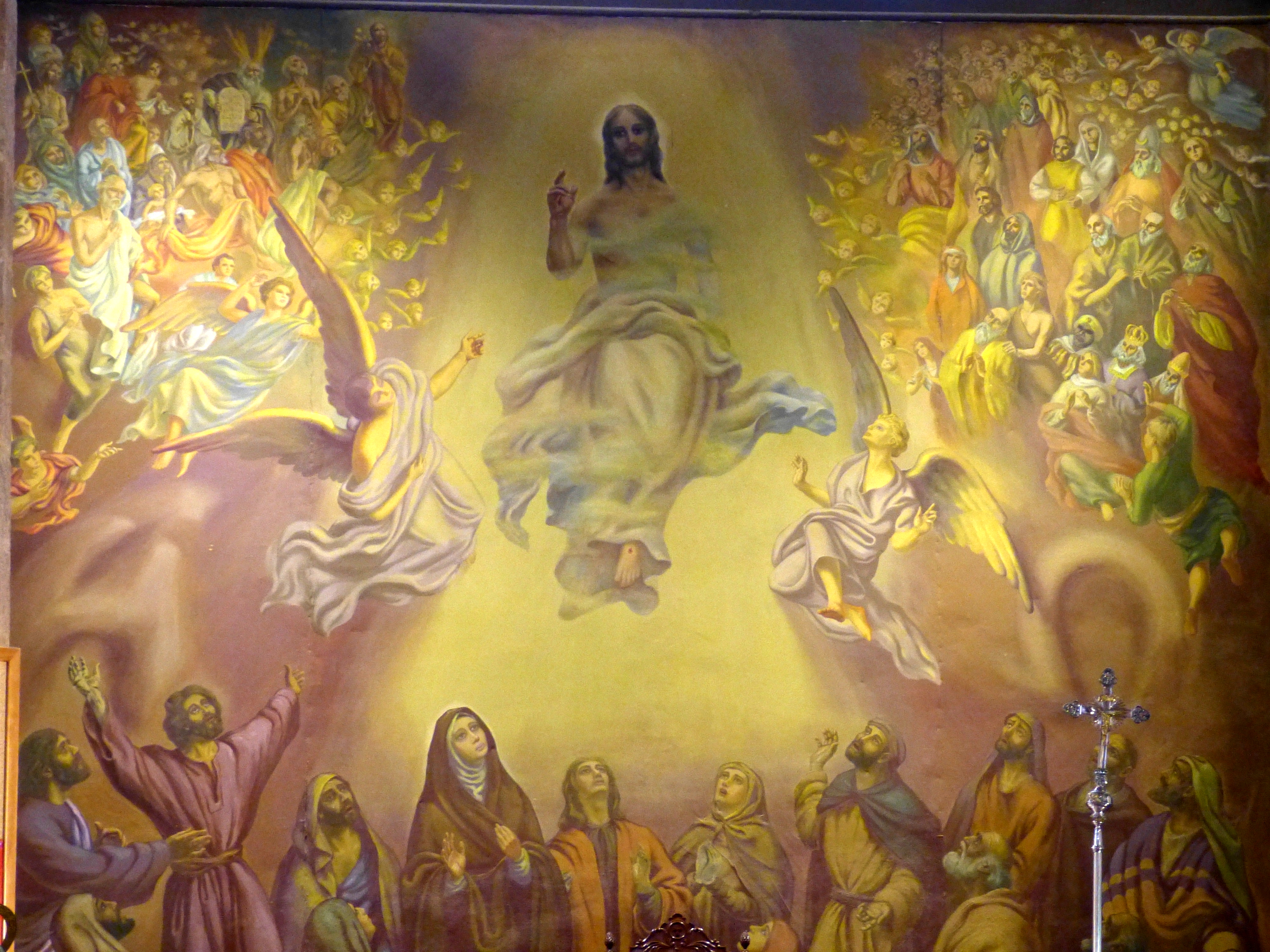When my daughter was little, she had a soft, pink and white baby blanket which we called “Mimi.” I wondered where this term for her blanket had originated and thought perhaps it came from “Me…me,” which is the way a one-year-old might say, “I want my blanket, please give it to me.” My daughter especially sought her “mimi” when she tired or distressed. Taking hold of it, she would nuzzle it to her cheek, stick her little thumb in her mouth and snuggle down in her crib. She would quickly fall asleep, knowing she was safe and secure.
There are phrases from Scripture that are just like a security blanket. We can “take” them and “snuggle down” with them in peace and tranquility. Today’s response from the Responsorial Psalm is one such verse. “The just will gaze on your face, O Lord.”
If we are willing to slow down and take the time to meditate and pray with this verse, it can teach us and shape us, comfort us and strengthen us. We can nestle down into the innermost places of our hearts and ask the Lord to show us His face. We can use our imagination to contemplate his countenance; to be transformed by his gaze as we gaze upon him.
In the Canticle to the Holy Face, St. Thérèse of Lisieux wrote a moving reflection on the face of Christ. This is an excerpt from her poem:
Thy Face is now my fatherland, —
The radiant sunshine of my days, —
My realm of love, my sunlit land,
Where, all life long, I sing Thy praise;
It is the lily of the vale,
Whose mystic perfume, freely given,
Brings comfort, when I faint and fail,
And makes me taste the peace of heaven…
My rest — my comfort — is Thy Face.
My only wealth, Lord! is thy Face;
I ask naught else than this from Thee;
Hid in the secret of that Face,
The more I shall resemble Thee!
Oh, leave on me some impress faint
Of Thy sweet, humble, patient Face,
And soon I shall become a saint,
And draw men to Thy saving grace.
So, in the secret of Thy Face,
Oh! hide me, hide me, Jesus blest!
There let me find its hidden grace,
Its holy fires, and, in heaven’s rest,
Its rapturous kiss, in Thy embrace!
St. Thérèse clearly loved to meditate on the face of Christ!
Gazing upon the face of Jesus means contemplating everything about Him, which mysteriously reveals to us who the Triune God is and who we are. It draws us into a relationship of love with God that transforms us, sometimes in painful ways, but never stops offering us the peace, joy, and security we crave.
Let’s take the time today to “snuggle down” in God’s presence and “gaze upon the face of the Lord!”
 Christine Hanus is a thwarted idealist who, nevertheless, lives quite happily in Upstate NY. She is a wife and mother of five grown children.
Christine Hanus is a thwarted idealist who, nevertheless, lives quite happily in Upstate NY. She is a wife and mother of five grown children.
Feature Image Credit: Ruben Mishchuk, unsplash.com/photos/R7hBaZWyiyM






 Kathryn Mulderink, MA, is married to Robert, Station Manager for Holy Family Radio. Together they have seven children (including Father Rob), and four grandchildren. She is President of the local community of Secular Discalced Carmelites and has published five books and many articles. Over the last 30 years, she has worked as a teacher, headmistress, catechist, Pastoral Associate, and DRE, and as a writer and voice talent for Catholic Radio. Currently, she serves the Church by writing and speaking, and by collaborating with various parishes and to lead others to encounter Christ and engage their faith. Her website is
Kathryn Mulderink, MA, is married to Robert, Station Manager for Holy Family Radio. Together they have seven children (including Father Rob), and four grandchildren. She is President of the local community of Secular Discalced Carmelites and has published five books and many articles. Over the last 30 years, she has worked as a teacher, headmistress, catechist, Pastoral Associate, and DRE, and as a writer and voice talent for Catholic Radio. Currently, she serves the Church by writing and speaking, and by collaborating with various parishes and to lead others to encounter Christ and engage their faith. Her website is 
 Dakota lives in Denver, CO with her husband, Ralph, and their two sons, Alfie & Theophilus. She is the Dean of Enrollment Management for Bishop Machebeuf High School where her husband also teaches. You can find Dakota at the zoo or a brewery with her family or with her nose in a book at home. For more of Dakota’s writing check out
Dakota lives in Denver, CO with her husband, Ralph, and their two sons, Alfie & Theophilus. She is the Dean of Enrollment Management for Bishop Machebeuf High School where her husband also teaches. You can find Dakota at the zoo or a brewery with her family or with her nose in a book at home. For more of Dakota’s writing check out 
 Kate Taliaferro is an Air Force wife and mother. She is blessed to be able to homeschool, bake bread and fold endless piles of laundry. When not planning a school day, writing a blog post or cooking pasta, Kate can be found curled up with a book or working with some kind of fiber craft. Kate blogs at
Kate Taliaferro is an Air Force wife and mother. She is blessed to be able to homeschool, bake bread and fold endless piles of laundry. When not planning a school day, writing a blog post or cooking pasta, Kate can be found curled up with a book or working with some kind of fiber craft. Kate blogs at 
 J.M. Pallas has had a lifelong love of Scriptures. When she is not busy with her vocation as a wife and mother to her “1 Samuel 1” son, or her vocation as a public health educator, you may find her at her parish women’s bible study, affectionately known as “The Bible Chicks.”
J.M. Pallas has had a lifelong love of Scriptures. When she is not busy with her vocation as a wife and mother to her “1 Samuel 1” son, or her vocation as a public health educator, you may find her at her parish women’s bible study, affectionately known as “The Bible Chicks.”
 Leslie Sholly is a Catholic, Southern wife and mother of five, living in her hometown, Knoxville, Tennessee. She graduated from Georgetown University with an English major and Theology minor. She blogs at
Leslie Sholly is a Catholic, Southern wife and mother of five, living in her hometown, Knoxville, Tennessee. She graduated from Georgetown University with an English major and Theology minor. She blogs at 
 Deacon Dan Schneider is a retired general manager of industrial distributors. He and his wife Vicki have been married for over 50 years. They are the parents of eight children and thirty grandchildren. He has a degree in Family Life Education from Spring Arbor University. He was ordained a Permanent Deacon in 2002. He has a passion for working with engaged and married couples and his main ministry has been preparing couples for marriage.
Deacon Dan Schneider is a retired general manager of industrial distributors. He and his wife Vicki have been married for over 50 years. They are the parents of eight children and thirty grandchildren. He has a degree in Family Life Education from Spring Arbor University. He was ordained a Permanent Deacon in 2002. He has a passion for working with engaged and married couples and his main ministry has been preparing couples for marriage.
 Kathryn James Hermes, FSP, is the author of the newly released title
Kathryn James Hermes, FSP, is the author of the newly released title

